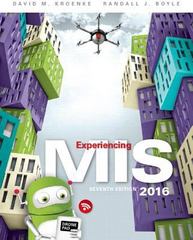Question
How do the best managers impact their teams and shape organizational culture? The top managers have a significant impact on their teams and the overall
How do the best managers impact their teams and shape organizational culture?
The top managers have a significant impact on their teams and the overall corporate culture through their leadership methods. They build trust, encourage collaboration, and help their team members reach their full potential. Bass' transformational leadership theory states that effective managers demonstrate traits such as charisma, inspiration, intellectual stimulation, and customized consideration. These leaders not only establish clear goals and expectations, but also provide mentorship, support, and feedback to their team members, fostering an environment conducive to growth and development. By encouraging open communication, accountability, and continual learning, these managers foster a sense of ownership and commitment among their team members, resulting in improved organizational performance and success (Avolio & Gardner, 2005).
Discuss a leader you know, especially from an organization where you currently work, have previously worked, or are familiar with. Consider their activities and the impact they have on others.
Sarah Johnson, the head of marketing at High Touch Technologies, is an exceptional leader with whom I've had the opportunity of working. Sarah's leadership style is defined by a combination of empathy, vision, and strategic thinking. She leads by example, consistently exhibiting integrity, transparency, and genuine concern for her team members' well-being. Sarah devotes time and effort to developing genuine relationships with her team members, taking a personal interest in their professional goals, strengths, and development needs. She creates a collaborative and innovative culture, encouraging her team members to share their ideas and contribute to the department's strategic direction. Sarah's influence on the organizational culture of High Touch Technologies is evident. Her emphasis on open communication, mutual respect, and common goals has created a sense of camaraderie and unity among team members. The department functions as a cohesive one in which employees feel respected, empowered, and inspired to do their best. Sarah's inclusive leadership style has also resulted in increased employee engagement, lower attrition, and more productivity among the marketing team (Bass, 1985). Furthermore, her commitment to diversity and inclusion has contributed to the development of a culture of belonging in which people from all walks of life feel welcome and valued.
How does their leadership style manifest in their organization's culture? What is the link between highly effective leaders and a positive company culture?
The organization's culture reflects Sarah's leadership style, which emphasizes transparency, collaboration, and employee empowerment. The values she promotes, such as integrity, empathy, and constant improvement, serve as guiding principles that pervade every area of the organizational culture. Team members feel valued and respected because their contributions are recognized and appreciated. The culture of open communication and criticism fosters trust and accountability, creating a supportive atmosphere in which people may take risks, learn from their mistakes, and strive for success (Avolio & Gardner, 2005). A positive organizational culture and effective leaders have a mutually beneficial connection. Effective executives not only shape their firms' cultures, but they also embody them. They represent the values, ideas, and conventions that define the organization's culture, acting as role models and change agents. A positive organizational culture, characterized by trust, teamwork, and a shared sense of purpose, improves leaders' effectiveness by creating an environment conducive to innovation, resilience, and peak performance. Effective leaders, on the other hand, help to sustain and evolve a positive company culture by creating an environment of psychological safety, constant learning, and ethical behavior (Bass, 1985).
Most students that speak about their leaders talk about the soft skills vs. the successes they have achieved through their leadership. From the above write up,what successes has Sarah achieved and how did she involve the team? If you could provide her with feedback, what would you say?
Please answer the questions individually and include in text citations and references.
Step by Step Solution
There are 3 Steps involved in it
Step: 1

Get Instant Access to Expert-Tailored Solutions
See step-by-step solutions with expert insights and AI powered tools for academic success
Step: 2

Step: 3

Ace Your Homework with AI
Get the answers you need in no time with our AI-driven, step-by-step assistance
Get Started


